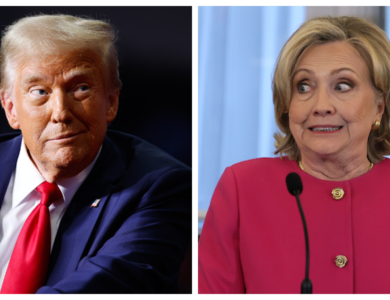Trump Makes Move To Step ‘Climate Lawfare’ Halting Energy Projects

The early months of President Donald Trump’s second term have marked a period of significant legal and regulatory shifts, many of which have triggered a raft of lawsuits by left-wing groups aligned with Democrats.
As such, one of the administration’s biggest priorities has become addressing what it describes as the misuse of the legal system — often termed “lawfare” — to undermine energy producers and obstruct economic development. The effort began with investigations into law firms and organizations accused of engaging in politically motivated litigation aimed at impeding the president’s agenda.
Last week, Trump signed an executive order granting Attorney General Pam Bondi expanded authority to review and respond to state and local lawsuits targeting energy companies. The administration argues that such litigation poses a threat to national energy policy and economic growth, the Daily Signal reports.
Read more: President Trump Puts Joe Biden On Notice – The Gloves Just Came OFF
Officials say the directive is part of a broader push to promote U.S. energy independence and reduce what they view as excessive legal barriers to infrastructure development and innovation.
Trump has directed Bondi to “expeditiously take all appropriate action to stop the enforcement of state laws and continuation of civil actions” that pose obstacles and threats to American energy dominance. These include restrictive rules and civil actions against oil, natural gas, hydroelectricity, and nuclear energy projects.
Trump is specifically focusing on a network of well-funded state attorneys general and private law firms that have employed novel legal theories to pursue financial penalties from energy companies, alleging they are responsible for so-called “climate” offenses, the outlet notes.
Read more: White House ROCKED – Legal Expert Drops Bombshell On President Trump
These lawsuits typically invoke state nuisance or consumer protection statutes, with plaintiffs arguing that energy companies deliberately misled the public about the environmental impact of their products.
A local lawsuit in North Carolina against Duke Energy, one of the nation’s largest nuclear energy providers, stands out as a particularly ironic case.
Officials in the small town of Carrboro are seeking damages from the company for alleged “climate-related harm” tied to its electricity production. This comes even though Duke Energy’s carbon-free nuclear fleet supplies power to roughly half the homes in North and South Carolina, and the region ranks among the lowest in per capita natural gas usage nationwide.
“Climate lawfare has a direct impact on consumers who rely on affordable energy of all types by forcing these companies to beef up their legal departments rather than improving the delivery of their goods and services,” the Daily Signal reported. “The end result is higher prices for consumers who already live on tight budgets due to the rising cost of living in other areas of the economy.”
Read more: Border Czar Homan Rattles DC Swamp After Dem Arrests – ‘More To Come…’
The majority of these lawsuits originate in Democratic-leaning states and are typically filed by attorneys representing city governments such as Honolulu, Boulder, Colorado, and San Francisco.
Blue states have also initiated legal actions, seeking to recover the alleged “costs” of climate change on local communities and to support the enforcement of “net-zero” energy policies.
“That’s why Trump’s revamp of federalism to review many of these laws and statutes is not only legal but deeply necessary,” the outlet reported. “Consumers who need affordable energy and who rely on continued innovation from the companies that power their lives should not have their standard of living cut by greedy environmental lawyers jamming up district courts where judges are ideologically inclined to their side.”
In March, the Supreme Court declined to intervene in the wave of climate lawsuits led by Democratic-run states, rejecting a request from Republican-led states to halt the litigation. In dissent, Justices Clarence Thomas and Samuel Alito wrote that the Court was sidestepping a significant constitutional issue “for policy reasons.”
Read more: Elon Musk Shares Clip Of Obama Calling For DOGE-Style Cuts
“When the Supreme Court refuses to address the obvious abuse of our litigation system for energy providers and the consumers that rely on them, the intervention of the executive branch becomes a necessity,” the Daily Signal noted. “The most likely unconstitutional state statutes that enable these costly lawsuits should meet the wrath of a president willing to exercise some federal authority.”





